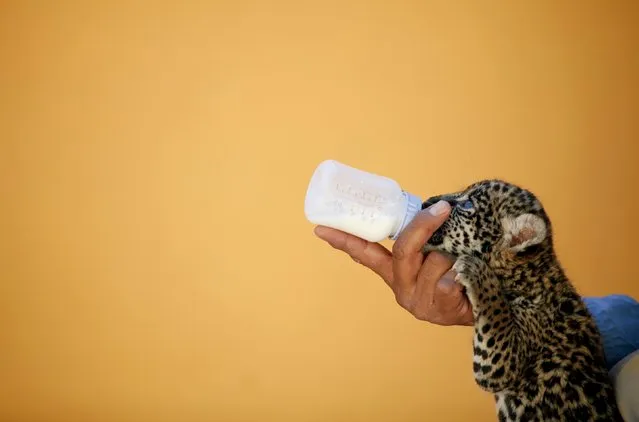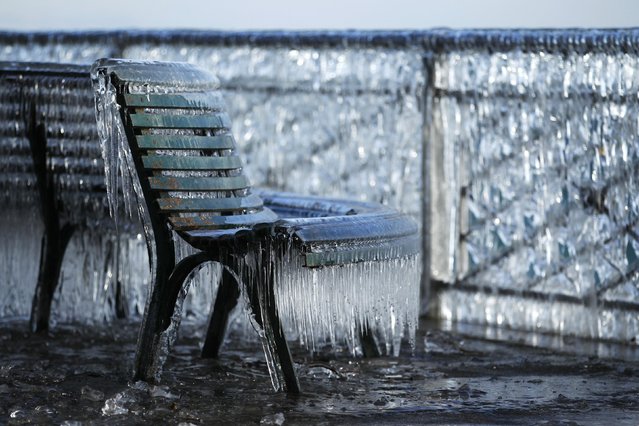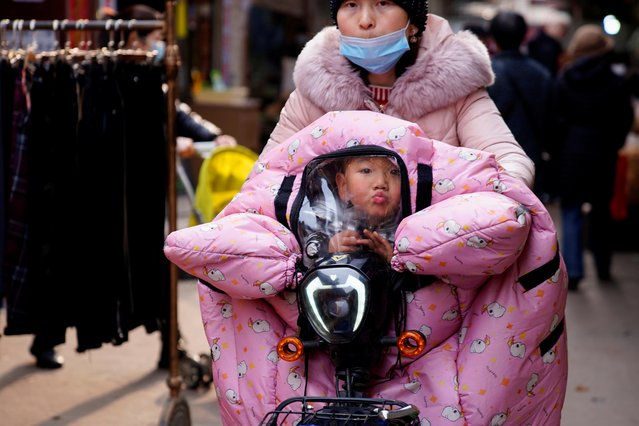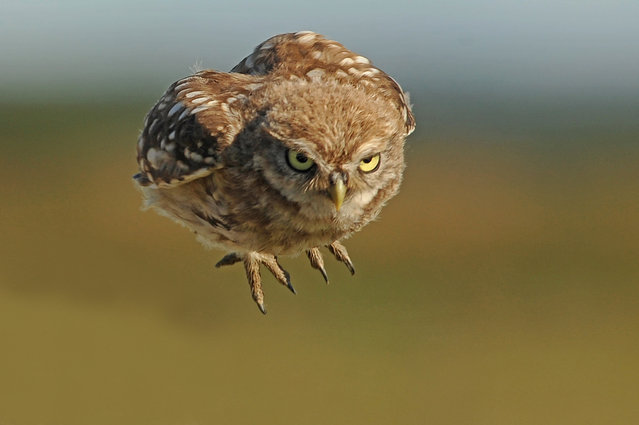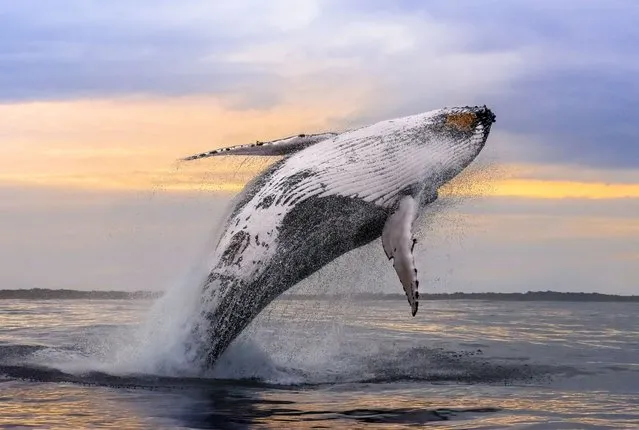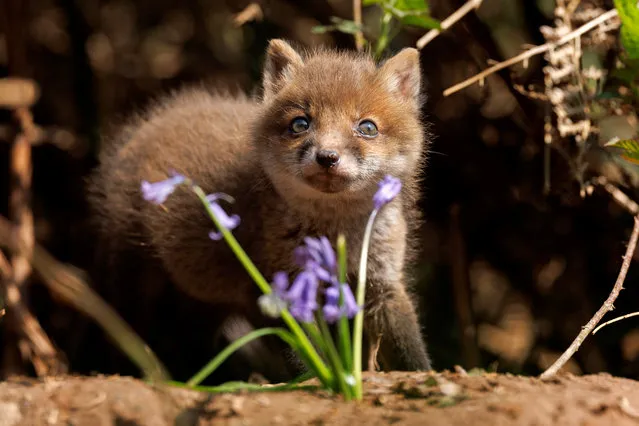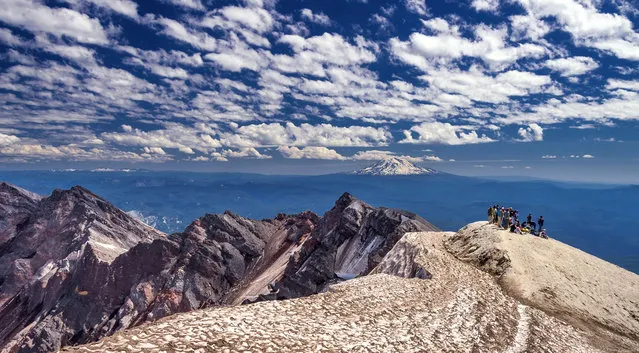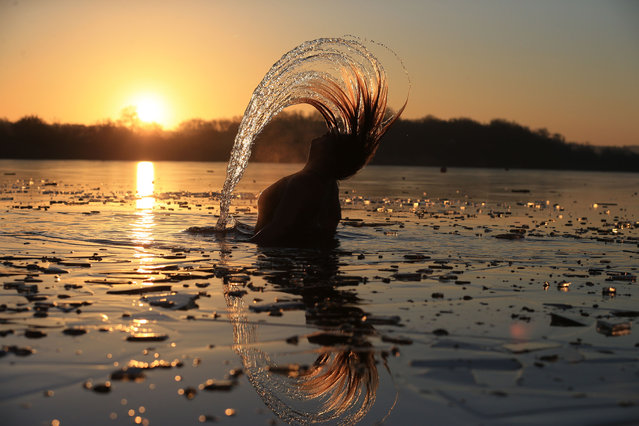
An open water swimmer surfaces as she enjoys a socially-distanced dawn swim after breaking the ice on the surface of a lake near Scunthorpe, northern England, January 9, 2021. Faced by a sharp rise in coronavirus infections, driven by the new strain, England entered a strict lockdown on January 5, 2021, with schools and non-essential shops closed for at least six weeks after previous measures failed to halt the steep rise in cases. (Photo by Lindsey Parnaby/AFP Photo)
